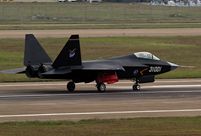 Bikini show in 2014 China Final of Miss Tourism World
Bikini show in 2014 China Final of Miss Tourism World
 Close-up view of August Aerobatic Team
Close-up view of August Aerobatic Team
 Goddesses married in 2014
Goddesses married in 2014
 Polar region photos raise worldwide awareness of global warming
Polar region photos raise worldwide awareness of global warming
 Get off at the last stop — Beijing Subway in vision
Get off at the last stop — Beijing Subway in vision
 Top 100 beauties in the world!
Top 100 beauties in the world!
 Gallery: Who is the most beautiful one?
Gallery: Who is the most beautiful one?
 If you like autumn, put your hands in the air!
If you like autumn, put your hands in the air!
 Fan Bingbing's "Queen style" in new play
Fan Bingbing's "Queen style" in new play
 Lingerie show at 2014 Miss China
Lingerie show at 2014 Miss China
BEIJING, Dec. 12 -- China will raise taxes on oil products from Saturday, the second increase in a month.
Tax on gasoline, naphtha, solvent oil and lubricating oil to will rise to 1.4 yuan (about 23 U.S. cents) per liter from 1.12 yuan. The levy on diesel, jet fuel and fuel oil will be increased from 0.94 yuan per liter to 1.1 yuan, according to the Ministry of Finance (MOF) and the State Administration of Taxation.
Retail prices of gasoline and diesel will be reduced by 170 yuan and 400 yuan per tonne after adding the higher tax, the National Development and Reform Commission announced in a separate statement.
Retail fuel prices have been cut for ten times since July as the government reacts to lower crude prices on the global market.
The adjustment will offset the drop in the price of crude oil and analysts estimate that fuel costs for drivers will remain flat after the move.
The raise involves other petroleum products including naphtha, lubricating oil and jet fuel. A statement on Nov. 28 exempted small-displacement motorcycle, tire and ethyl alcohol from the tax to reduce burden on low and middle income group.
Fuel tax and pricing reform began five years ago, raising consumption tax and launching a pricing system more closely linked with international market.
Consumption tax was firstly imposed in 1994 on consumer goods with a high energy cost and high pollution to make production and consumption more environmentally-friendly and promote sustainable growth.
Over ten countries including Russia, Australia, New Zealand and France have raised their oil product consumption tax since 2012 to ensure green development.
Zhu Qing of Renmin University of China, believes that heavy tax on the products that harm the environment is a global trend, noting the average tax on oil products hit 0.67 U.S. dollar per liter in the 34 OECD countries with the highest as much as 1.4 U.S. dollars.
"It's a signal of tougher policy on energy saving and emission reduction," said Liu Shangxi, director of the research institute for fiscal science at the MOF.
Liu said that there is no sign of a mechanism connecting the tax on oil products and the oil price, and the two recent increases mainly targeted cutting fuel oil consumption.
"Energy saving is a long-term mission," he said, "Low oil prices can hardly contribute to better air and living conditions."
When asked about if there is any repetition between fuel tax and expressway tolls, Liu explained that the MOF released a notice to prevent repetitive taxes and dues in road and waterway transport in 2009, the year fuel tax and pricing reform kicked off.
(For the latest China news, Please follow People's Daily on Twitter and Facebook)
 20 years on: Relocated Three Gorges residents through lens
20 years on: Relocated Three Gorges residents through lens PLA HK Garrison veterans leave behind beautiful smiles
PLA HK Garrison veterans leave behind beautiful smiles Representative beauties of each province in China
Representative beauties of each province in China Chestnut girl goes viral online
Chestnut girl goes viral online Victoria's Secret Fashion Show
Victoria's Secret Fashion Show In photos: Bright and brave female soldier of PLA
In photos: Bright and brave female soldier of PLA China's charming first lady
China's charming first lady Excellent photos of Zhuhai Air Show
Excellent photos of Zhuhai Air Show China's heavyweight aircraft
China's heavyweight aircraft Society needs consensus on street politics
Society needs consensus on street politics Policy bank plan gets mixed reaction
Policy bank plan gets mixed reaction  Shopaholics
Shopaholics  Hungry moments
Hungry momentsDay|Week|Month